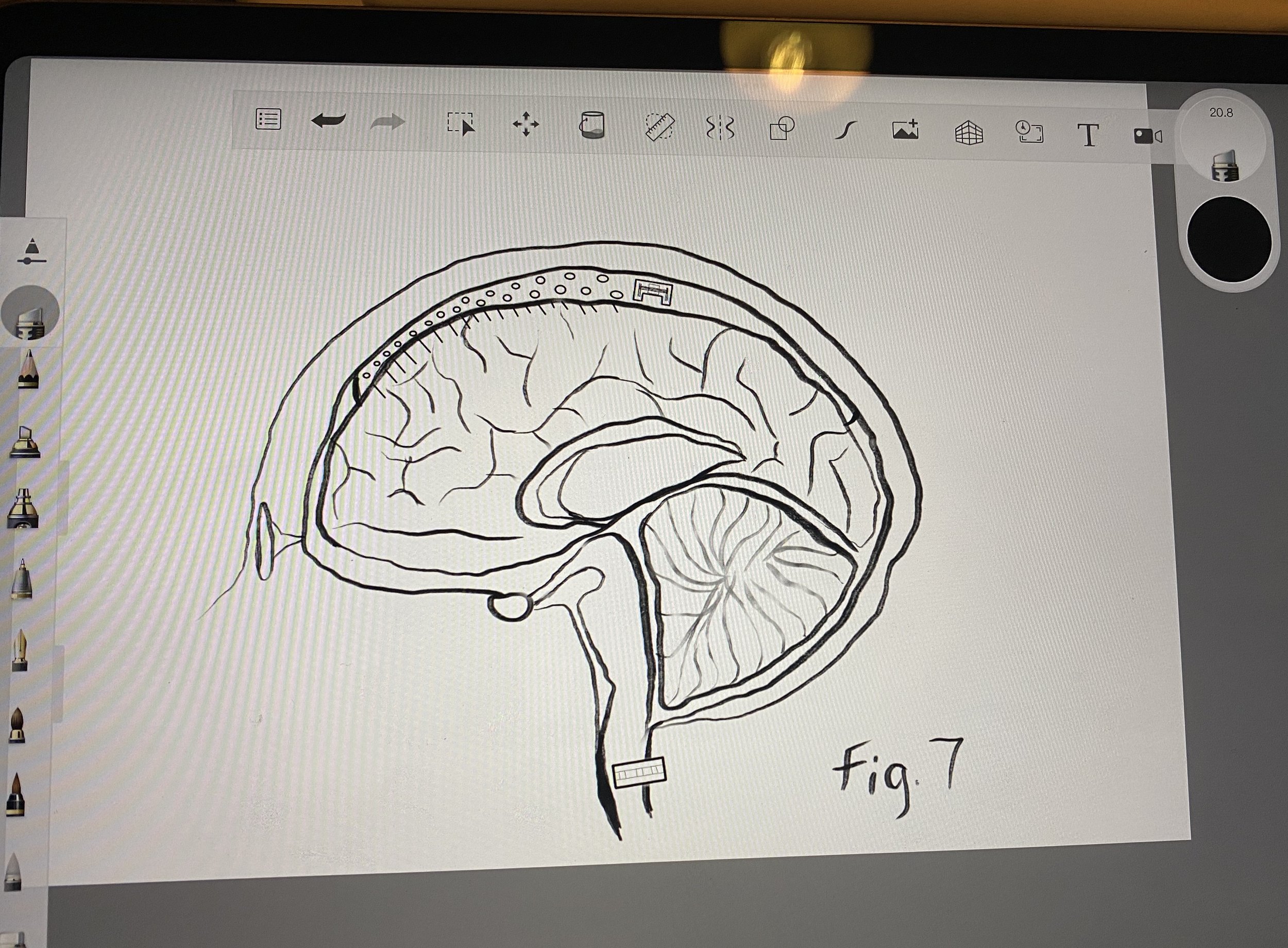Our Brazen Bull
I’m busy prepping for the release of my next novel, writing a sequel to my novella, and wrapping up a short story. However, the news just won’t let me get away from my third novel, The Control Problem.
If you have read it already, you’ll know that a biotech company features prominently (Perilaus Industries, because I love a good reference). In the process of writing The Control Problem I did a lot of research into brain implants. I even drew a diagram. I spent an hour drawing it, took a photo of my tablet, and then accidentally deleted the drawing. Ah, so it goes.
All that remains of my Control Problem plaster diagram
While writing any science fiction content, I like to use patent applications and research papers to fictionalize technology. It’s helpful to see how working researchers think about strategies and problems, even if I end up not using the information directly. I also rely on a book I first read for college, Laboratory Life, whenever I describe research. With all these things, I wrote tCP with what I think is a comprehensive, realistic set of technologies that could exist in the near future. Because it is fiction, I’m only using these technologies to tell a story – in the case of The Control Problem, I have a few messages that I’ll leave you to interpret.
One, however, is about the tech transhumanism class, specifically how they exploit "lower" classes. We see this today in the proliferation of things that claim to be AI, where real humans are hidden away in data processing centers and paid poverty wages to be the ghosts in a machine. Sure, all that data is meant to fool investors and us, but it is also intended to educate a system that the creators hope will one day extend human consciousness beyond biological limitations. At least, certain people’s consciousness.
This week, that one guy announced the first human subject received his brain implant. Many internet folks rightly pointed out that he himself would not be getting v1 of this device. Like a lot of people, I worry who will. Sure, it could be a big time fan of his. Or it could be someone who is fundamentally unwell. Maybe both. What kind of oversight is there over this experiment? Certainly doesn’t seem to be robust. Does the FDA even care?
We already have eye implants that have been rendered obsolete. What can someone do if a brain implant stops being supported? If the materials decay unexpectedly? If it is battery powered and needs a replacement, or worse, the toxic battery material leaks into their brain? We are, after all, our brains. Our bodies are meat mechsuits. The entity we know of as ourselves is helplessly trapped within our skulls (sorry). Should we allow testing of this technology on people, all to benefit a group whose goal is to escape the physical condition? Who view human frailty with contempt, and real life like a temporary inconvenience?
That’s pretty weird, right? People who loudly reject any obligation for the physical welfare of bodies should maybe not have access to the health of others? This is where regulation is supposed to regulate things, and yet here we are, reading news about human trials after researchers lamented how "...hard [it is] on the little piggies" to have faulty devices implanted incorrectly.
I can’t fault people who suffer for seeking relief where they may find it. I’m only a science fiction author, but I just don’t think they’ll find it with that guy.
